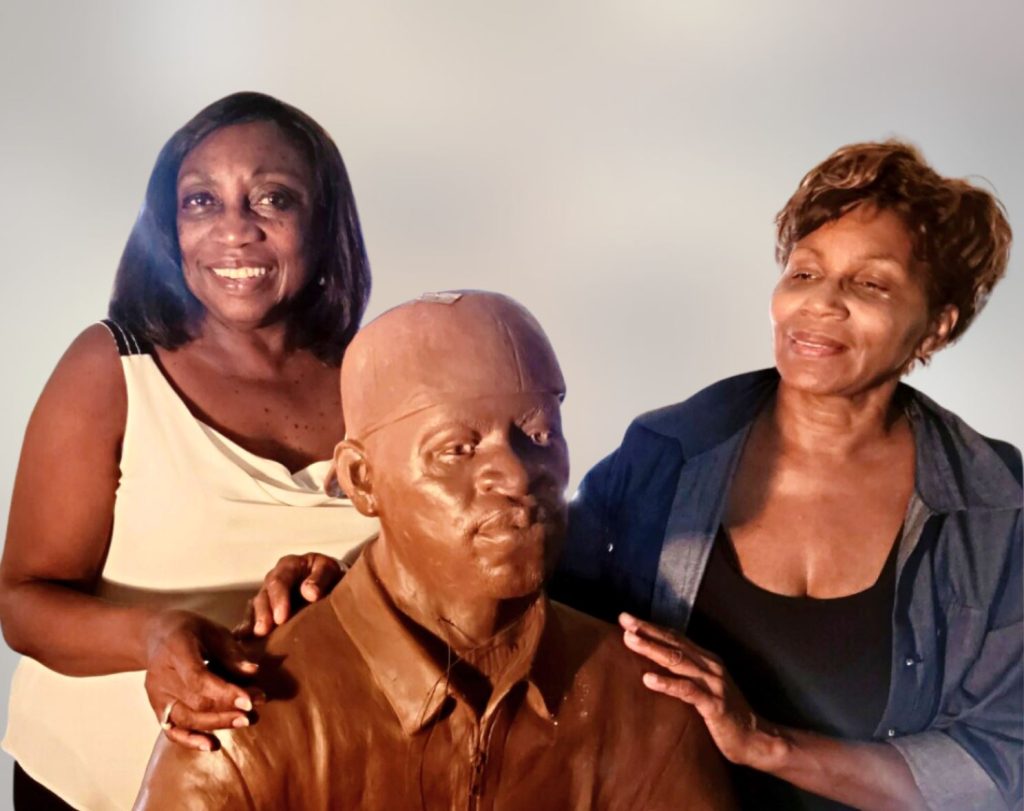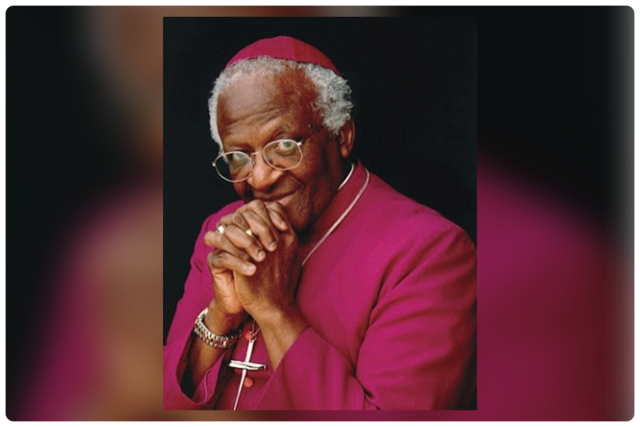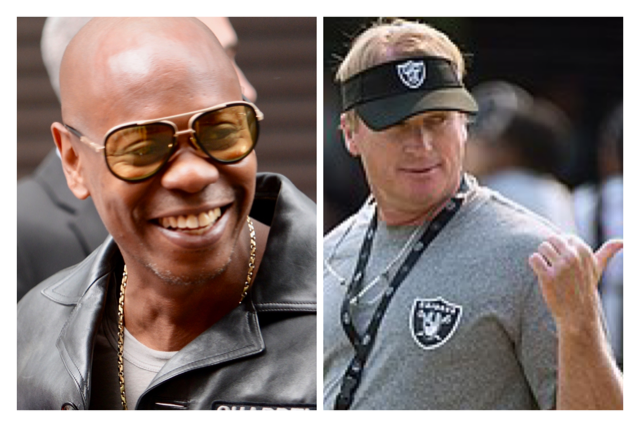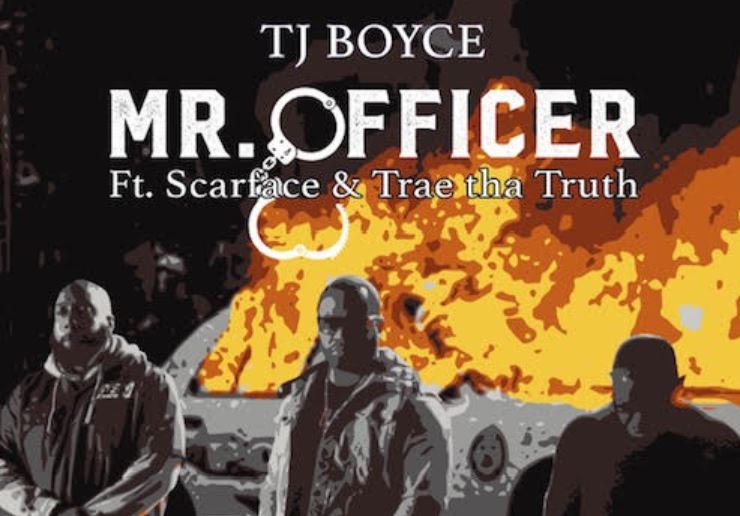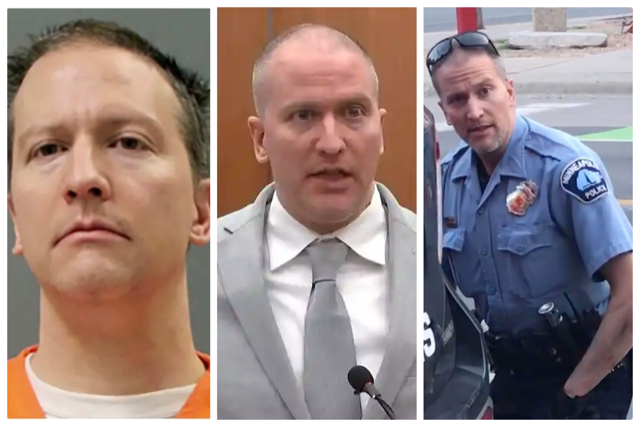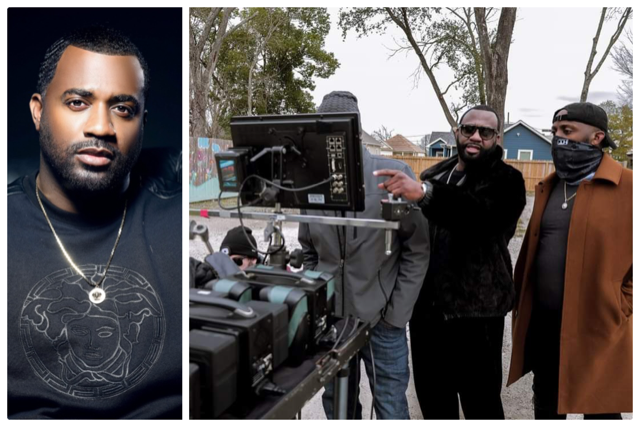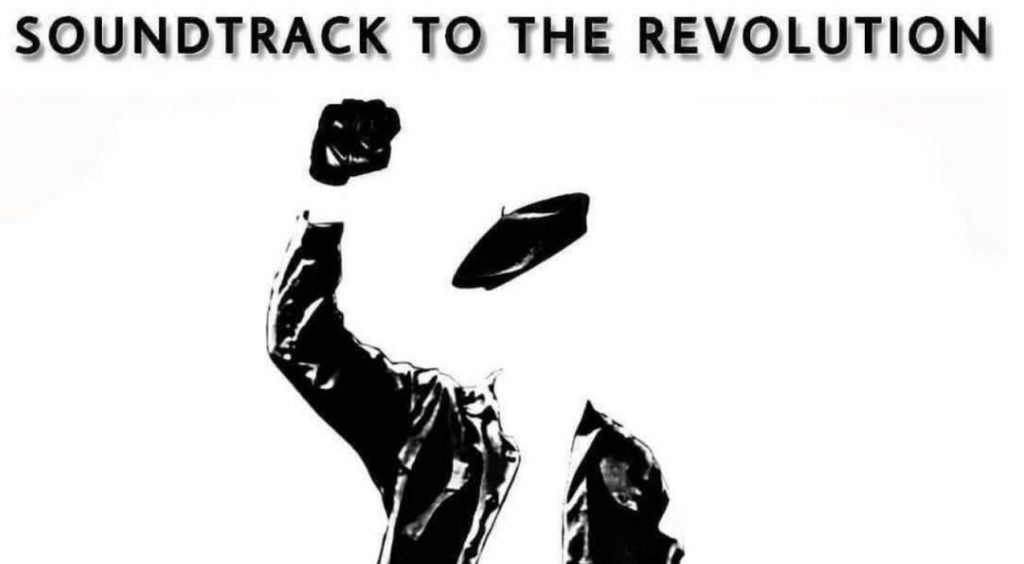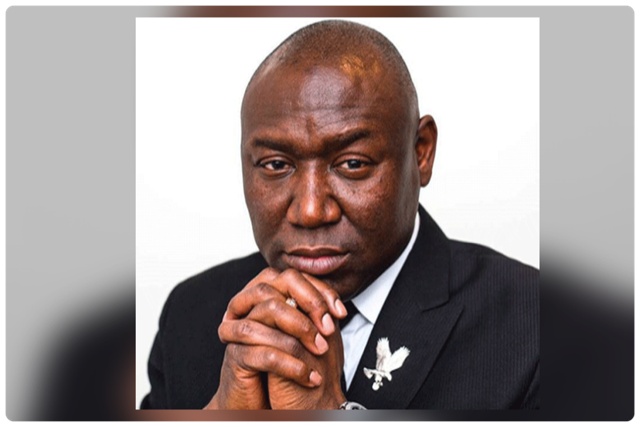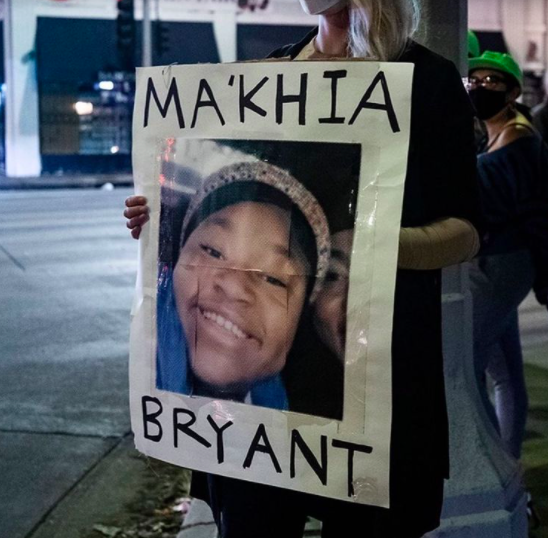Social Justice
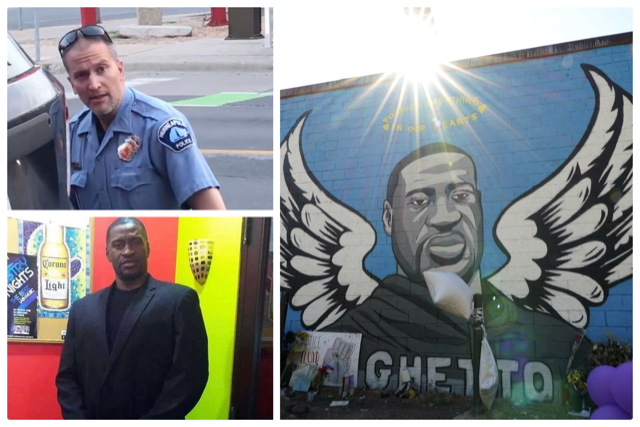
Derek Chauvin, the former police officer convicted in the killing of George Floyd, has been seriously injured during a prison attack, but people across social media are not expressing any sympathy for him. Chauvin was stabbed approximately 22 times by an inmate in the Federal Correctional Institution in Tucson, Arizona. According to court documents, the attack occurred in the prison’s law library, where John Turscak, a 52-year-old inmate, assaulted Chauvin with an improvised knife. The motive behind this attack is reported to be symbolic, linked to the Black Lives Matter movement and the Mexican Mafia criminal organization. Turscak, who has been charged with attempted murder, expressed intent to kill Chauvin, had the correctional officers not intervened promptly. The charges against Turscak include assault with intent to commit murder, carrying maximum penalties of up to 20 years in prison. Chauvin is currently serving two concurrent sentences for Floyd’s 2020 murder. That case became the focal point in the global movement against racial injustice and police brutality. Floyd was lying on the ground begging for mercy as Chauvin knelt on his neck for nine minutes. People on social media are asking if Chauvin felt helpless as he was being stabbed, hoping someone would rescue him – as the guards did – although he did not allow anyone to help Floyd.
Dannette Davis, of Kay Davis Associates, has donated a $110,000 statue of the late George Floyd to Harris County. The entrepreneur and philanthropist commissioned the piece, “A Conversation with George,” by renowned sculptress Adrienne Rison-Isom. Isom shared that it took months of research and learning about Floyd to bring the life-sized bronze statue to life. “I met with many of Floyd’s family and friends while creating this piece and everyone described him as having a playful, approachable temperament and human nature,” said Isom. “I wanted to represent that by sculpting him with a nonintimidating facial expression and easy-going body language.” From the beginning of the project, Davis and Isom made it a point to make sure that the Floyd Family Foundation was involved and approved of the sculpture. “It’s his family and they need to be good with it and support,” said Davis. “If they are good with it then we know that we have done our job.” Commissioner Rodney Ellis, whose Precinct 1 includes the Third Ward neighborhood where Floyd grew up, was among the first supporters of the project, along with Houston Councilwoman Carolyn Shabazz. They both worked alongside Davis and the Kay Davis In The Community Foundation to choose the perfect location. “Initially we thought of the Third Ward area until the idea of Tom Bass Park was mentioned. It was really an “aha” moment for us all. The beauty of Tom Bass, surrounded by the lakes and nature, really captures Floyd’s peaceful demeanor as described by his family and friends,” Davis shared. The sculpture depicts Floyd seated at an outdoor table welcoming everyone, all races and ethnic backgrounds, to have a seat and join him. The symbolism of Floyd being an approachable guy who would ” spark” conversation or friendship with anyone is what Davis says she wants visitors to take away. Many do not know that Floyd was also an artist. Davis was impressed when she learned that he played a major part in the rise of Houston’s most notable rap group, “The Screwed Up Click.” The group, which was led by the legendary DJ Screw, helped popularize Houston’s iconic “chopped and screwed” sound that has become synonymous with Houston rap. “We all witnessed the impact that George Floyd made on the world, but at the end of the day, he was a ‘regular guy’ with a few extraordinary talents. He was an athlete and artist, but he was also a father, a son, and a brother,” said Davis. “Just like all of us he was a multi-dimensional human trying to find his way in this world.” She hopes that the life-size bronze statue will not only serve as a tribute to Floyd but will also serve history as a public bookmark, capturing a snapshot of a transformative moment in time. “I think it’s important to focus on his humanity and ours, taking a break from the political messaging that typically follows the mentioning of his name. How do we make life better for the young people he cared about and mentored,” said Davis. “This gift of life-size art should make you ponder your life choices and future. It is also a beautiful bronze piece to be appreciated and admired when visited.” She hopes that it will show Floyd from a unique perspective and foster positive conversations on race. The official unveiling of the statue will be held in May to honor the anniversary of George Floyd’s death. Please find the official press release attached along with additional photographic assets. For more information or to schedule an interview with Dannette Davis or Adrienne Rison-Isom please email Alex Green at info@agmediaagency.com
Family, friends and dignitaries around the world were mourning the loss of Archbishop Desmond Tutu,who died Sunday at the age of 90, sparking a global outpouring of tributes to the anti-apartheid hero. He had been in poor health for several years. Desmond Mpilo Tutu was a South African Anglican bishop and theologian, known for his work as an anti-apartheid and human rights activist. He was Bishop of Johannesburg from 1985 to 1986 and then Archbishop of Cape Town from 1986 to 1996, in both cases being the first black African to hold the position. Theologically, he sought to fuse ideas from black theology with African theology. Tutu was born of mixed Xhosa and Motswana heritage to a poor family in Klerksdorp, South Africa. Entering adulthood, he trained as a teacher and married Nomalizo Leah Shenxane in 1955, with whom he had four children, including Mpho Tutu van Furth. In 1960, he was ordained as an Anglican priest and in 1962, he moved to the United Kingdom to study theology at King’s College London. In 1966 he returned to Africa, teaching at the Federal Theological Seminary in South Africa, and then the University of Botswana, Lesotho and Swaziland. In 1972, he became the Theological Education Fund’s director for Africa, a position based in London but necessitating regular tours of the African continent. Back in southern Africa in 1975, he served first as dean of St Mary’s Cathedral in Johannesburg and then as Bishop of Lesotho. From 1978 to 1985, Tutu served as the general secretary of the South African Council of Churches. He emerged as one of the most prominent opponents of South Africa’s apartheid system of racial segregation and white minority rule. Although warning the National Party government that anger at apartheid would lead to racial violence, as an activist he stressed non-violent protest and foreign economic pressure to bring about universal suffrage. In 1985, Tutu became Bishop of Johannesburg and in 1986 the Archbishop of Cape Town, the most senior position in southern Africa’s Anglican hierarchy. In this position, he emphasised a consensus-building model of leadership and oversaw the introduction of female priests. Also in 1986, he became president of the All Africa Conference of Churches, resulting in further tours of the continent. After President F. W. de Klerk released the anti-apartheid activist Nelson Mandela from prison in 1990 and the pair led negotiations to end apartheid and introduce multi-racial democracy, Tutu assisted as a mediator between rival black factions. After the 1994 general election resulted in a coalition government headed by Mandela, the latter selected Tutu to chair the Truth and Reconciliation Commission to investigate past human rights abuses committed by both pro and anti-apartheid groups. Following apartheid’s fall, Tutu campaigned for gay rights and spoke out on a wide range of subjects, among them his support of Palestinians in the Israeli–Palestinian conflict (alongside his simultaneous belief in Israel’s right to exist), his opposition to the Iraq War, and his criticism of South African presidents Thabo Mbeki and Jacob Zuma. In 2010, he retired from public life. As Tutu rose to prominence in the 1970s, different socio-economic groups and political classes held a wide range of views about him, from critical to admiring. He was popular among South Africa’s black majority and was internationally praised for his work involving anti-apartheid activism, for which he won the Nobel Peace Prize and other international awards. He also compiled several books of his speeches and sermons. He continued to be a change agent across the world for decades. In October 2010, Tutu announced his retirement from public life so that he could spend more time “at home with my family – reading and writing and praying and thinking.” In May 2013, he declared that he would no longer vote for the ANC, stating that while the party was “very good at leading us in the struggle to be free from oppression,” it had done a poor job in countering inequality, violence, and corruption. The following month, he welcomed the launch of a new party, Agang South Africa. After Nelson Mandela died in December 2013, Tutu initially stated that he had not been invited to the funeral; after the government denied this, Tutu announced his attendance. He criticised the memorials held for Mandela, stating that they gave too much prominence to the ANC and marginalised Afrikaners, commenting that Mandela would have been appalled. Tutu maintained an interest in social issues. In July 2014, he came out in support of legalised assisted dying,later stating that he would want that option open to him personally. In December 2015, Tutu’s daughter, Mpho Tutu, married a woman in the Netherlands. Tutu attended and gave the proceedings a blessing, despite Anglican opposition to same-sex marriage. Tutu continued commenting on international affairs. In November 2012, he published a letter alongside Mairead Maguire and Adolfo Pérez Esquivel in which they expressed support for the imprisoned US military whistleblower Chelsea Manning. In May 2014, Tutu visited Fort McMurray, in the heart of the Canada’s oil sands oil fields, and said, “The fact that this filth is being created now, when the link between carbon emissions and global warming is so obvious, reflects negligence and greed.” A month earlier he had called for an “an apartheid-style boycott [of corporations financing the injustice of climate change] to save the planet.” In August 2017, Tutu was among ten Nobel Peace Prize laureates who urged Saudi Arabia to stop the execution of 14 participants of the 2011–12 Saudi Arabian protests.[382] In September, Tutu asked Myanmar’s leader Aung San Suu Kyi to halt the army’s persecution of the country’s Muslim Rohingya minority. In December 2017, he was among those to condemn US President Donald Trump’s decision to officially recognise Jerusalem as Israel’s capital despite Palestinian opposition. Tutu died from cancer at the Oasis Frail Care Centre in Cape Town on December 26, 2021 at the age of 90. His daughter Naomi Nontombi said, “He was ready. He went to meet his God, ready and
By: Nevaeh Richardson Cancel culture claims to be this indiscriminate force bringing accountability to the rich and powerful. But it’s no secret that certain groups manage to evade the watchful eye of cancel culture, and those groups are more often than not white. This is not to say that wrong-doers of Black heritage should be exempt from retribution, but merely highlighting the fact that America will turn a blind eye to white offenders while waiting for a Black public figure to slip up and fail. While cancel culture for white public figures means paying their public relations team to write a half-baked apology and continuing business as usual after being exposed for being a bigot, exploiter, etc., “cancel culture” could mean the end of a career for Black figures. The most recent examples of cancel culture’s double standards between whites and Black people include ESPN’s suspension of Sage Steele after her remarks about former President Obama’s race, misogynistic comments, and anti-vaccination statements on the podcast Uncut. Steele criticized Obama’s decision to identify as Black, considering the fact that he is biracial. She also implied that women warranted rude, sexist, and harassing comments by what they choose to wear. “…when you dress like that, I’m not saying you deserve the gross comments, but you know what you’re doing when you’re putting that outfit on,” she said. Steele finished off with anti COVID-19 vaccine statements, saying that ESPN’s vaccine mandate was “sick” and “scary.” A week after the podcast episode aired, ESPN issued a statement announcing that Steele would be suspended from the network for a week and has been removed as the host of the 2021 ESPNW: Women + Sports Summit. Steele was completely in the wrong, there’s no argument about that and her consequences were rightfully deserved, but there’s something to be said about her white male counterparts who have expressed the exact same misogynistic, anti-Black, and anti-vaccination sentiments without so much as a slap on the wrist. Comedian Dave Chappelle also faced backlash for his most recent Netflix special, “The Closer,” after he expressed some incendiary opinions about transwomen and the LGBTQ+ community. He was also accused of supporting insensitive comments by rapper DaBaby and “Harry Potter” author J.K. Rowling. “They canceled J.K. Rowling — my God. Effectually she said gender was a fact. The trans community got mad as sh**, they started calling her a TERF,” Chappelle said, which means “trans-exclusionary radical feminists,” whose views about feminism are seen as anti-trans. He added, “I’m team TERF… Gender is a fact.” Chapelle was immediately slammed by social media, with celebrities boycotting Netflix and calling for Chapelle’s show to be cancelled, particularly white, trans producer Jaclyn Moore of Netflix’s “Dear White People.” After an investigation into the Washington Football Club, where hundreds of thousands of emails containing racist, mysogynistic, and homophobic language were found. Only Las Vegas Raiders Coach Jon Gruden was found responsible and resigned. There have been no emails released to the public. Lawyers representing 40 former employees of the team who reported sexual harrassment and other workplace misconduct urged the NFL to immediately release the full findings of the investigation. They called it “outrageous” that only Gruden has been “held accountable” after the 10-month probe. What we know for a fact is that Gruden is not the only person responsible for these emails, and that others are being protected by the NFL. It’s time to call out cancel culture’s purposely-placed blind spots, which never fail to punish Black offenders while ignoring and protecting white ones.
The new Mr. Officer music video by TJ Boyce, Scarface, and Trae The Truth, has been released! The stirring new music video for Mr. Officer gives a real-life depiction of what many have experienced in this country at the hands of law enforcement. Get ready to be shocked at the video, which has been turned into a short film, showing how many police “see us.” Are we men, or animals? The entire video/ movie was shot in Houston, Texas. [WATCH FULL MOVIE] [WATCH MUSIC VIDEO]
Derek Chauvin, the cold-blooded killer who murdered George Floyd, was sentenced Friday to serve 22.5 years in prison. The White former Minneapolis police officer who became a symbol of racism, hatred and police brutality made a brief statement to the Floyd family during his sentencing hearing. “I want to give my condolences to the Floyd family. There’s going to be some other information in the future that would be of interest and I hope things will give you some peace of mind,” he said. Prosecutors had asked for a 30 year sentence, and Chauvin’s attorney asked for probation and time served. Chauvin was convicted of second-degree murder, third-degree murder and second-degree manslaughter. Chauvin, 45, has no prior criminal record. State guidelines say that for such a person, the presumptive sentence for both second-degree and third-degree murder is 12 1/2 years. The judge was given discretion to hand down a sentence between 10 years and eight months and 15 years for each. On May 25, 2020, George Perry Floyd Jr. allegedly passed a counterfeit $20 bill to a clerk at a Minneapolis convenience store. The clerk called police and Chauvin was one of four police officers who arrived to the scene. Several surveillance cameras showed Floyd putting up some resistance in the beginning, but when Chauvin and the other police officers placed him on the street pavement, he did not fight back. Chauvin then knelt on Floyd’s neck – while the other officers straddled his back for 9 minutes and 29 seconds – as Floyd gasped for air. Floyd begged for the officers to stop, telling them repeatedly he could not breathe, but Chauvin refused to take his knee off of Floyd’s neck as a crowd of onlookers gathered. The crowd begged the officers to take pity on Floyd, who began calling out for his deceased mother to help him. Floyd took his last breath in front of the onlookers, who were filming the entire incident, and still, Chauvin refused to get up. He calmly remained on Floyd’s neck – seemingly without a care in the world. After Floyd’s death, protests against police brutality, especially towards Black people, quickly spread across the United States and internationally. The case hit very close to home for Houstonians. Floyd grew up in Houston and attended Jack Yates High School, playing football and basketball throughout high school and college. He was a hip hop artist and served as a mentor in his religious community. Between 1997 and 2005, he had a few run-ins with the law, and in 2014, he moved to the Minneapolis area, residing in the nearby suburb of St. Louis Park, and worked as a truck driver and bouncer. In 2020, he lost his job as a truck driver, and then his security job during the COVID-19 pandemic. The City of Minneapolis settled a wrongful death lawsuit with Floyd’s family for $27 million. The trial of the other three officers also charged in Floyd’s death is scheduled for August 2021.
Houston native TJ Boyce is a “Jack of all trades” when it comes to the entertainment industry. He sings, raps, writes, produces and directs, not only music videos, but also movies. The multitalented artist’s song, “Black Woman,” is racing up the charts, being the most “added” single on Urban AC, but his latest production, “Mr. Officer” is a piece screaming out for justice and demanding an end to racism against African Americans. Last year, the devoted father released a music video, “Ghetto America,” which received national acclaim. The piece is a stirring “twist of fate” depiction inspired by the death of George Floyd, and stars Boyce, his children (TJ III and London) and actor Omar Gooding. Ghetto America gives us a look at what “could have happened” if Floyd was white and the officer who killed him – Derek Chauvin – was Black. And today, still inspired by the country’s continued social unrest, his production, “Mr. Officer” is a extended length music video / short film that tackles the ongoing issues of police brutality against Blacks. The “how they see us” theme will leave audiences with jaws dropped and eyes wide open. Vibe Houston caught up with Boyce to get his thoughts on parenting, Houston’s entertainment scene and how, despite it all, we must keep striving to reach the top. [WATCH]: Check out trailer for Mr. Officer, premiering on Juneteenth. Vibe: How did you get started in the entertainment industry? Boyce: I turned down a recording contract when I was attending high school in Midland, Texas, but while attending Texas Southern University, I started doing some modeling after meeting people who worked with Cicely Tyson. I worked briefly in Los Angeles and from there, I started to expand my gifts, which included writing songs for other artists. Vibe: How did your kids become involved? Boyce: I noticed that my kids were exceptionally talented very early on. I put my son in local theater and started taking him to audition at a very young age. It brought tears to my eyes when I noticed the talent that God had given him and I decided to put my career on hold in order to nurture his dreams. Later on, I noticed that my daughter was following her big brother’s lead and so, it became a family affair. Vibe: What are your philosophies on parenting? Boyce: I believe that we must put our children in positions to be successful. If you see a talent, do all that you can to nurture it, and it doesn’t have to be about money. If you can’t pay for a certain training for your children, look into community programs that your children can participate in for free. There are all kinds of acting and artists workshops out there. And whenever you can, volunteer your personal services as a parent to help out with those community projects. The more you are involved, the more it can help your children. I can proudly say that TJ III has landed several commercials, has been on a comedy kids show with the amazing Wayne Brady and is beginning this month to film a Disney movie. And London has starred in “Antebellum” playing Janelle Monae’s daughter, is the face of the Blue Bell Ice Cream Sandwiches and just finished shooting with Tichina Arnold and Vivica A. Fox in her own movie, in which I’m producing, “Wonder London: I Hate My Curly Hair.” Vibe: What do you teach your children about entrepreneurship? Boyce: I teach them that being an entrepreneur, you have to put in twice as much work. I teach them that a great entrepreneur must have the ability to communicate well, strategize, focus, and sell. That is why the children have their very own ice cream truck, Boyce Kids Cream Machine, in which they actually operate themselves. We go to festivals and various outdoor events where the kids can make money while learning the value of hard work, investing and profits. And when it comes to the entertainment industry, I teach them to not wait on Hollywood. They can create their own projects. TJ III, at age 15, has already released a single and is a published author, and London – at only 8 years old – has also released a book, which is what her movie was created from. Vibe: What do you feel about the Houston entertainment industry? Boyce: I’m optimistic about it. Houston has a lot of talent. And I believe so much in it, that I am outlining plans to build a music and movie studio in Houston where we can continue to create our own projects, on a larger scale, in addition to bringing outside money from other industry leaders right to H-Town. Vibe: How did you come up with the concept of Mr. Officer? Boyce: Mr. Officer was originally inspired by the Breonna Taylor story. We all know what happened there. I just felt “enough was enough” and it made me start to think about “how do they see us?” I realized that some officers really think Blacks are nothing more than animals. You will see what I mean in the production. Vibe: Who stars in Mr. Officer? Boyce: We have a great lineup of talent. Tyrin Turner, best known as “Caine” from “Menace to Society,” is the lead actor in the film, and the music video portion features myself, Scarface and Trae tha Truth. Vibe: What is the biggest takeaway you want audiences to get from Mr. Officer? Boyce: I want them to think. I want them to be physically moved and inspired. I want police to realize that we ARE human! Vibe: Do you believe CHANGE is really coming to America? Boyce: The politically correct response would be to say “yes,” but sadly, I don’t. The recent election should be an indicator that we’re a country divided right down the middle. Vibe: What is your philosophy on giving back? Boyce: I believe that it’s a blessing to be a blessing. Giving back
Described by others as a combination of Marvin Gaye’s “What’s Going On” and NWA’s “Straight Outta Compton,” the “Soundtrack to the Revolution” is a gritty, in-your-face call to action to stand against every atrocity created against African Americans, including racism, social injustice and police brutality. The project was led by Smackwater, aka the “Realest [expletive] on the Gram,” and Cornel Grant, the creator of Music Monopoly Media Group. “The single ‘Juneteenth’ is a feel good, family reunion, ‘make you want to get up and dance’ song that still touches base on the social issues today,” said Grant. “When we shot the video, which will be released on Juneteenth, everybody at MacGregor Park was smiling and having a good time, forgetting it was a video shoot. Everyone says this is their favorite song on the album.” Grant and Smackwater were on the phone with each other when they learned George Floyd had died. The two discussed how people were angry and “tearing sh** up out there,” so it was time to make a “soundtrack to the revolution.” And just like that, they had the title to their album. The duo called all of their trusted industry friends and everyone came ready to write and record on the spot. The album was complete within 27 hours; two 10-hour sessions and one seven-hour session. “We were just trying something and it came out interesting. We did it for the culture,” Grant said. Featured rappers on “Juneteenth” are Smackwater, 44 B. Young (who was recently released after serving 25 years in prison), and D.E.V.I.O.S. Kidricc James and Sudari Scott sing the hook. Click here to find album on all platforms. STAY CONNECTED: @Musicmonopoly @Smackwater790
Benjamin Crump, attorney, civil rights leader and author, will address graduates at Texas Southern University’s Spring 2021 Commencement. The ceremonies will take place at 8:30 a.m. and 11:30 a.m. on Saturday, May 8, 2021, at Alexander Durley Stadium. Renowned civil rights attorney Crump is the founder and principal owner of Ben Crump Law and has established himself as one of the nation’s foremost lawyers and advocates for social justice. Crump’s tireless advocacy has led to legislation preventing excessive force and developing implicit bias training and policies. He has represented families in several high-profile civil rights cases including, Trayvon Martin, Michael Brown as well as the residents of Flint, Michigan, who were affected by the Flint River’s poisonous water. Crump also represented nine of the 13 black women who were victims in the Holtzclaw Oklahoma City Police rape case in 2015 and worked on the precedent-setting U.S. Supreme Court case involving excessive police force against Houstonian Robbie Tolan in 2008. “Ben Crump exemplifies moral courage. Throughout his career, he has spoken truth to power, reminding us of the impact that a single voice can have,” said TSU Interim President Ken Huewitt. “As our graduates prepare to make their difference in the world, I have no doubt they will find both strength and inspiration in his words.” Crump is the President of the National Civil Rights Trial Lawyers Association and previously served as President of the National Bar Association. He was the first African-American to chair the Florida State University College of Law Board of Directors and currently serves on the Innocence Project Board of Directors. Crump is the founder and director of the Benjamin Crump Social Justice Institute. “Commencement is a special celebration of commitment, hard work and learning,” said TSU Provost and Vice President of Academic Affairs and Research Dr. Kendall T. Harris. “I am so proud of our students and excited for the wisdom Attorney Crump will share that will help them make significant changes and impact on their communities, the nation and the world.” Among dozens of accomplishments, Crump has been recognized with the NAACP Thurgood Marshall Award, the SCLC Martin Luther King Servant Leader Award, the American Association for Justice Johnnie Cochran Award, and the Alpha Kappa Alpha Sorority Incorporated Eleanor Roosevelt Medallion for Service. Crump graduated from Florida State University and received his law degree from FSU College of Law. He is a frequent contributor to Huffington Post Black Voices, CNN, and USA Today.
New details have emerged in the officer-involved shooting death of 16-year-old Ma’Khia Bryant. According to new reports, Bryant called the police on a group of girls who had come to her foster home to fight her. Bryant’s mother, Paula Bryant, told reporters that her daughter was, in fact, the victim. The officer to arrive at the scene saw Bryant wielding a knife and lunging at one of her alleged attackers. On the newly-released video, the officer can be seen approaching Bryant and shooting her multiple times as the officer continues to stand pointing his gun at Bryant. Paula Bryant described her daughter as an honor roll student who was extremely loving and sweet. “This never should have happened, she’s a loving girl,” the mother said. “I’m very upset. I’m hurt. I want answers. My daughter dispatched the Columbus Police for protection, not to be a homicide today.” After the release of the new video showing the other responding officer’s view, the question has been posed as to why the officer used the gun and not a taser. The shooting death of Bryant is another in a long line of police-involved shootings among people of color. People want to know, was there another way to subdue the teen without killing her? Was deadly force necessary?


